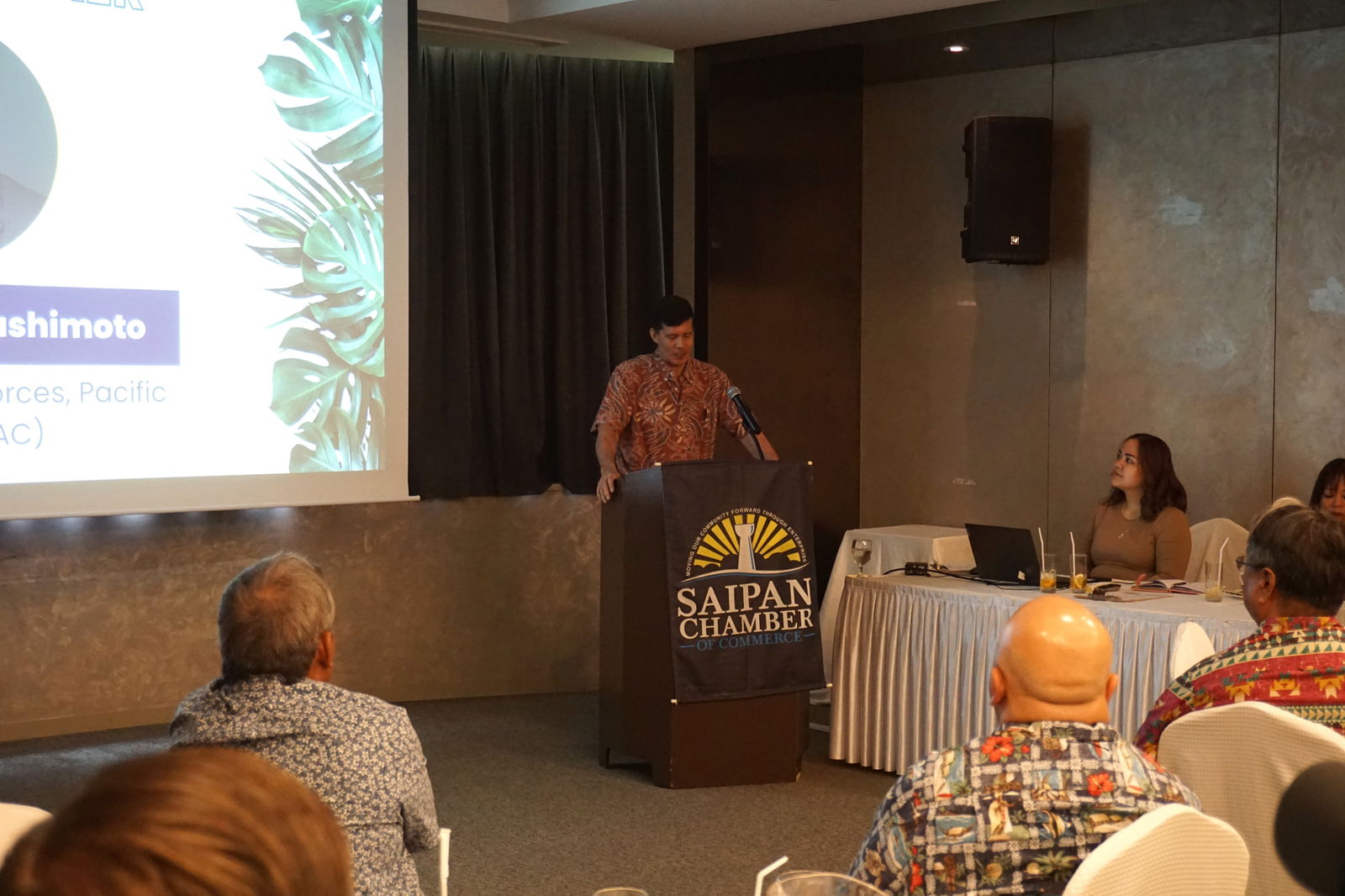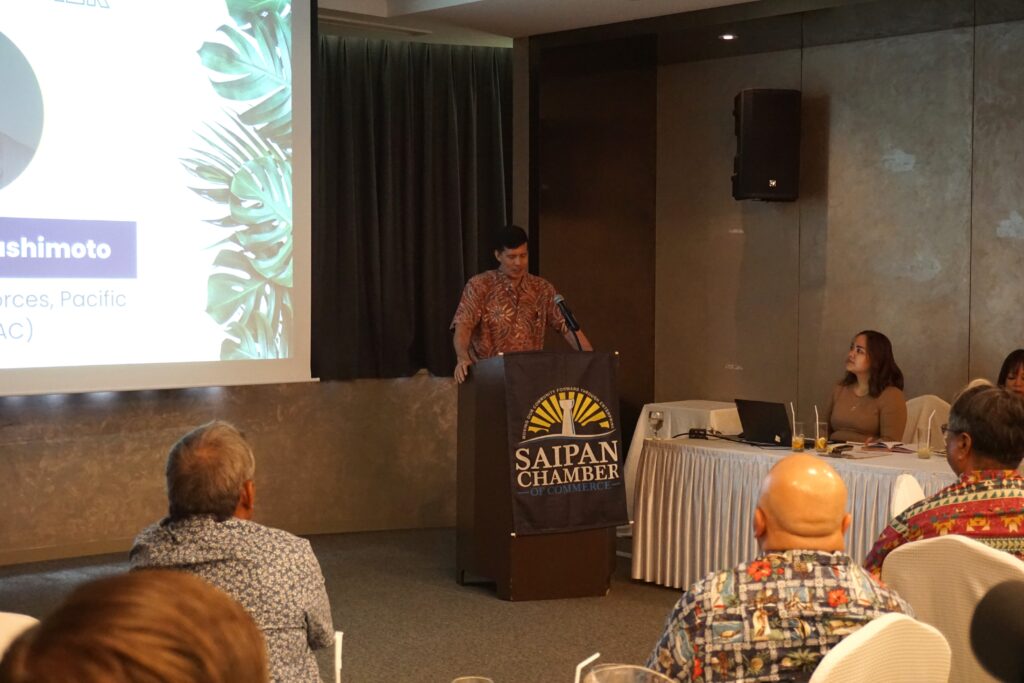
Retired Marine Corps Maj. Gen. Mark Hashimoto was one of the guest speakers of the Saipan Chamber of Commerce during its general membership meeting on Wednesday at Saipan World Resort.
CHINA’S “aggressive” actions in the Pacific are the reason for the U.S. military’s advanced training activities in the region, according to Mark Hashimoto, the executive director of the U.S. Marine Corps Forces, Pacific.
“China is becoming more and more aggressive,” Hashimoto told the Saipan Chamber of Commerce during its general membership meeting at the Saipan World Resort on Tuesday, May 1.
He cited China’s “dangerous and aggressive activity” in the South China Sea as an example.
Hashimoto retired recently as a U.S. Marine Corps major general and now serves as a civilian advisor to the military officials on Guam overseeing the movement of Marines to the island.
He said China’s activities create a “state of managed tensions in the region.”
Moreover, he said, the “three major states that threaten us — Russia, China and North Korea —are taking unprecedented actions that challenge the international norms.”
In response, he added, the U.S. military is conducting operations like Valiant Shield, a field training exercise that engages the armed forces’ land, sea, and air capabilities.
Hashimoto said one thing that “keeps [the military] up at night” is “the notion that we might have to send a Marine, soldier, sailor, airman or [National Guard member] into harm’s way without being properly trained.”
He said the movement of Marines to Guam’s Marine Corps Base Camp Blaz “remains on track” and that approximately 100 Marines are due to arrive there at the end of this year.
Joe Guerrero, Saipan Chamber of Commerce president, asked Hashimoto if the CNMI can balance the need for Chinese tourists with national security concerns.
“What keeps many of us up at night…is trying to figure out a path moving forward,” Guerrero said. “We don’t have our China tourism market. We lost it during Covid. Everyone after Covid was sort of hoping to reopen. [But] it’s tough when we don’t have our [second] largest tourism market,” Guerrero said.
Hashimoto replied, “Speaking as the executive director of the Marine Corps Forces, Pacific, I certainly understand your question and everything connected. There’s the concept of national defense, which is the business the military is in, and then there’s a broader sense of national security where the balance is struck.”
Hashimoto said despite a “clear indication” of an adversarial relationship between the Chinese and U.S., there are areas of cooperation, such as humanitarian assistance and disaster relief, where the two parties could work.
But he said the balance between economic security and national defense is one that is made by politicians.
“That is certainly not something that military leaders advise politicians on — where to or how to strike that balance,” he added.











